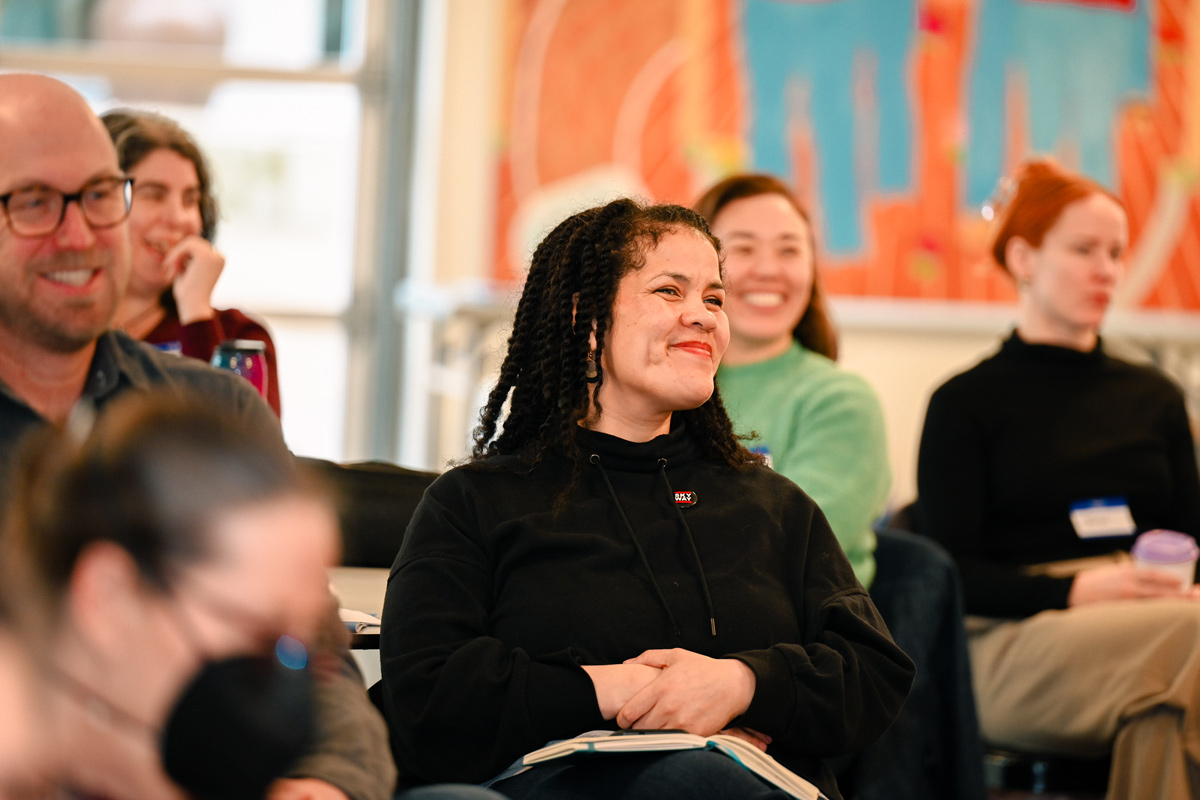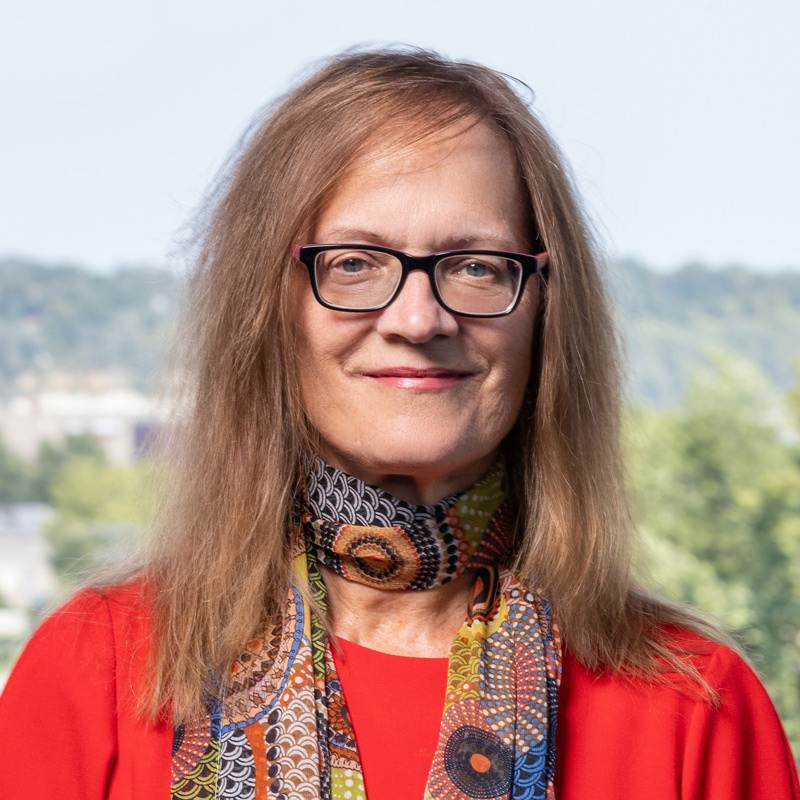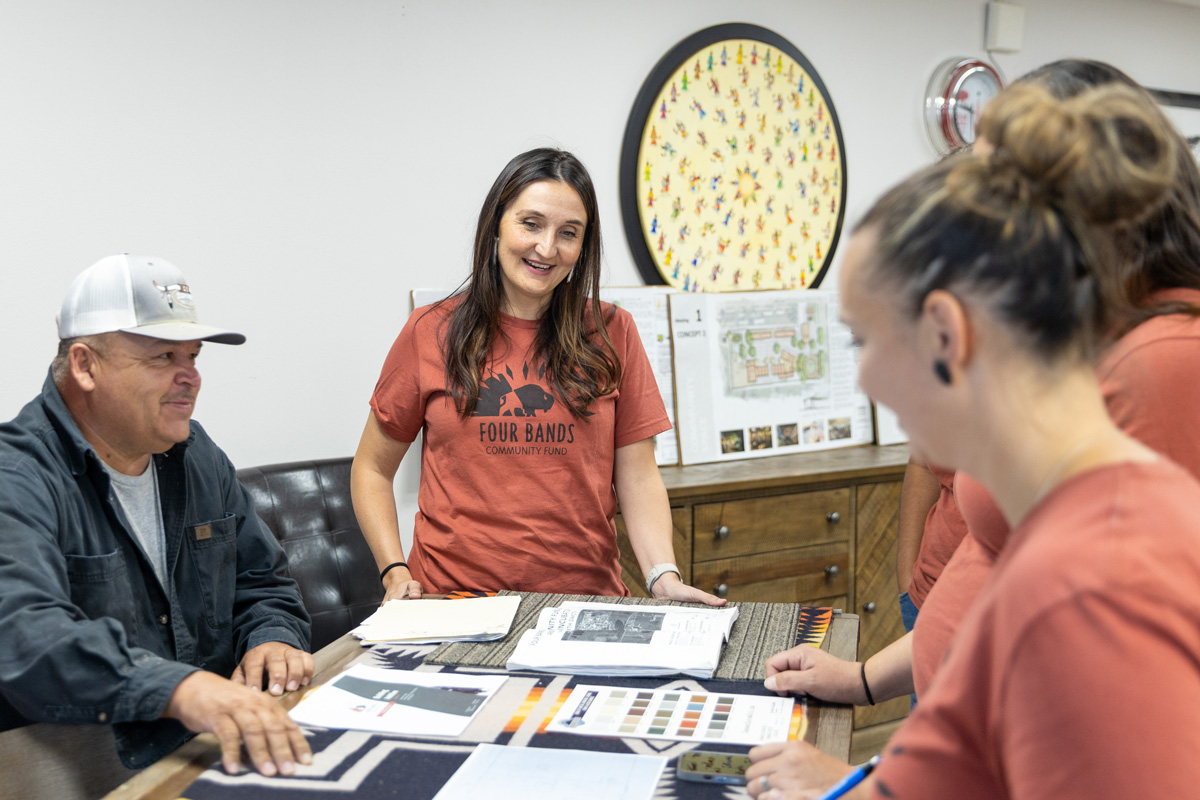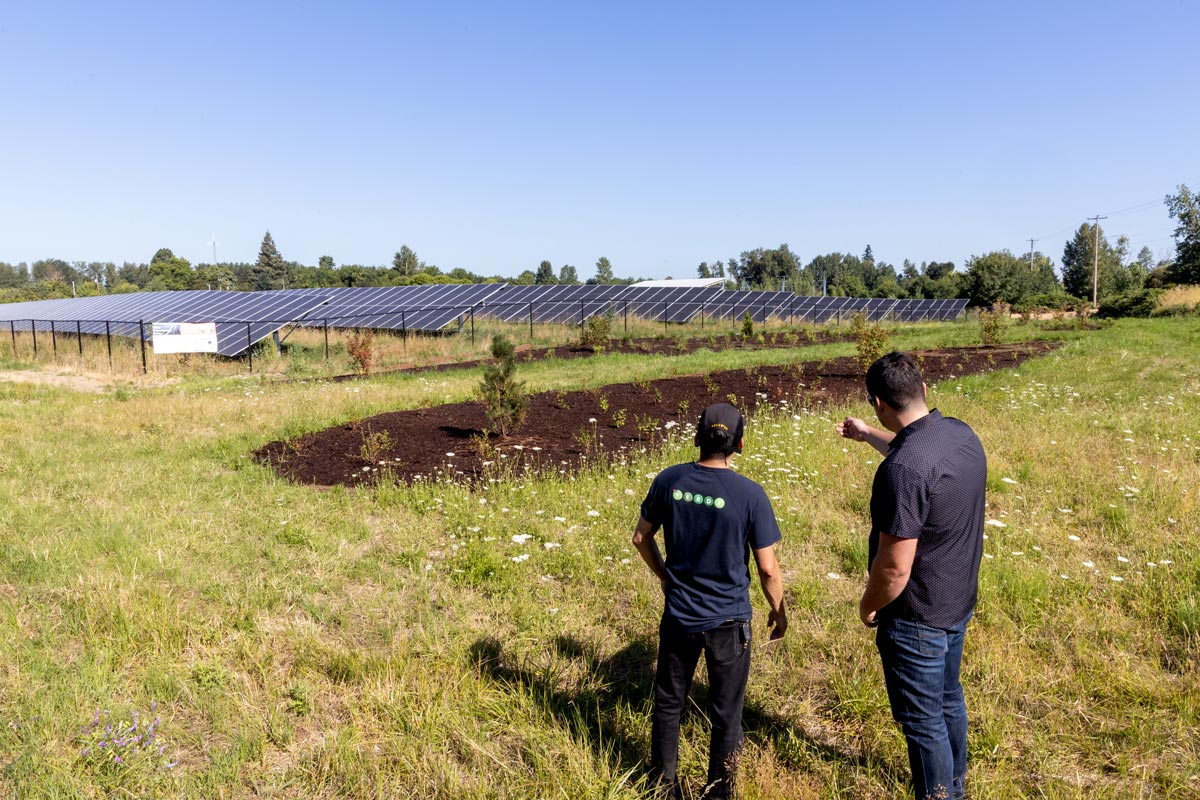
Our grantees have taught us that necessary systems change is best determined by the communities experiencing injustices—and because each community has a unique history, circumstances, and culture—part of our job as funders is to be constant and humble learners.
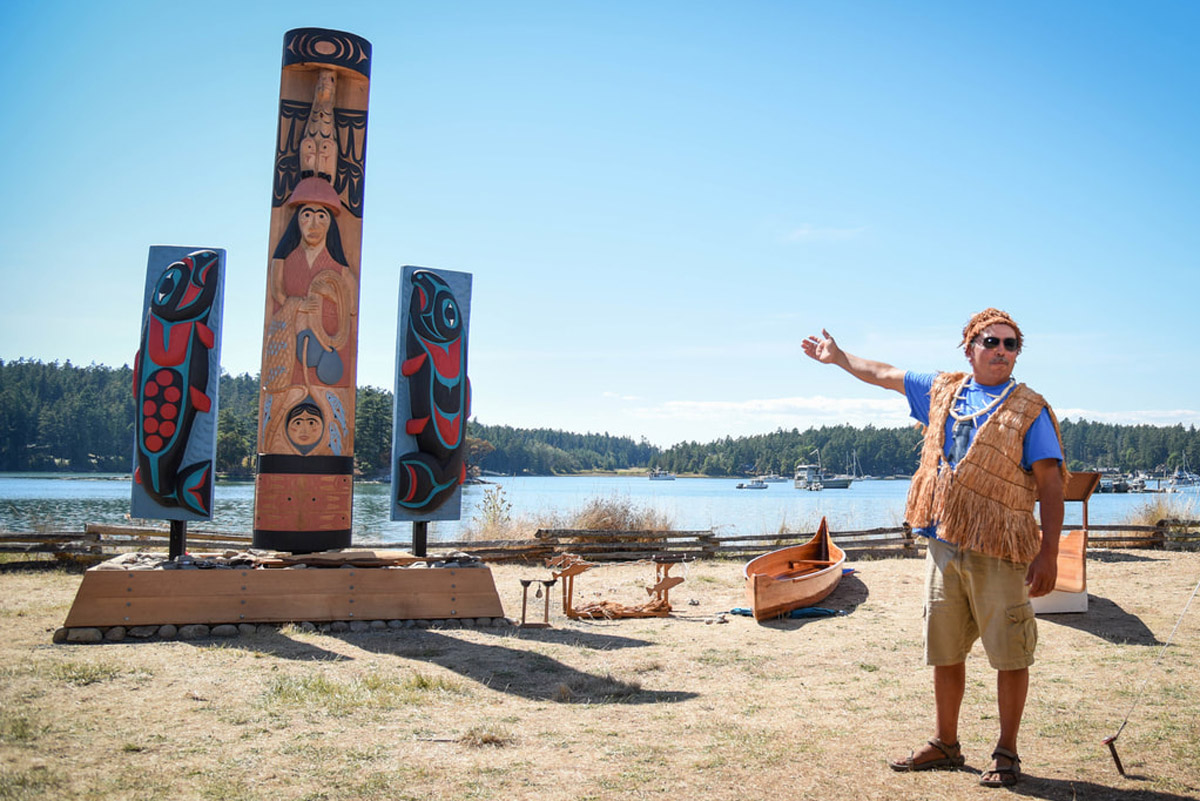
WE cofounder Troy Olsen (Lummi) points to a totem pole illustrating traditional reef net fishing flanked by two salmon storyboards gifted on behalf of the Coast Salish People reef net kinship to the San Juan Island National Historical Park to celebrate the National Park Service’s 100th anniversary. Photo courtesy of Whiteswan Environmental.
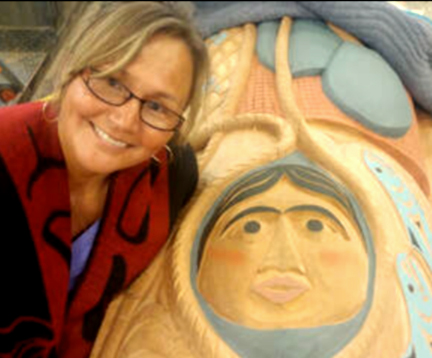
“Our work is about survival, transforming an educational system to move beyond the genocide of traditional knowledge systems, providing knowledge democracy to honor all peoples’ history, culture, governance, and language, and making sure our bioregion doesn’t become a concrete jungle.”
Shirley L. Williams (Lummi)
Cofounder and Executive Director, Whiteswan Environmental
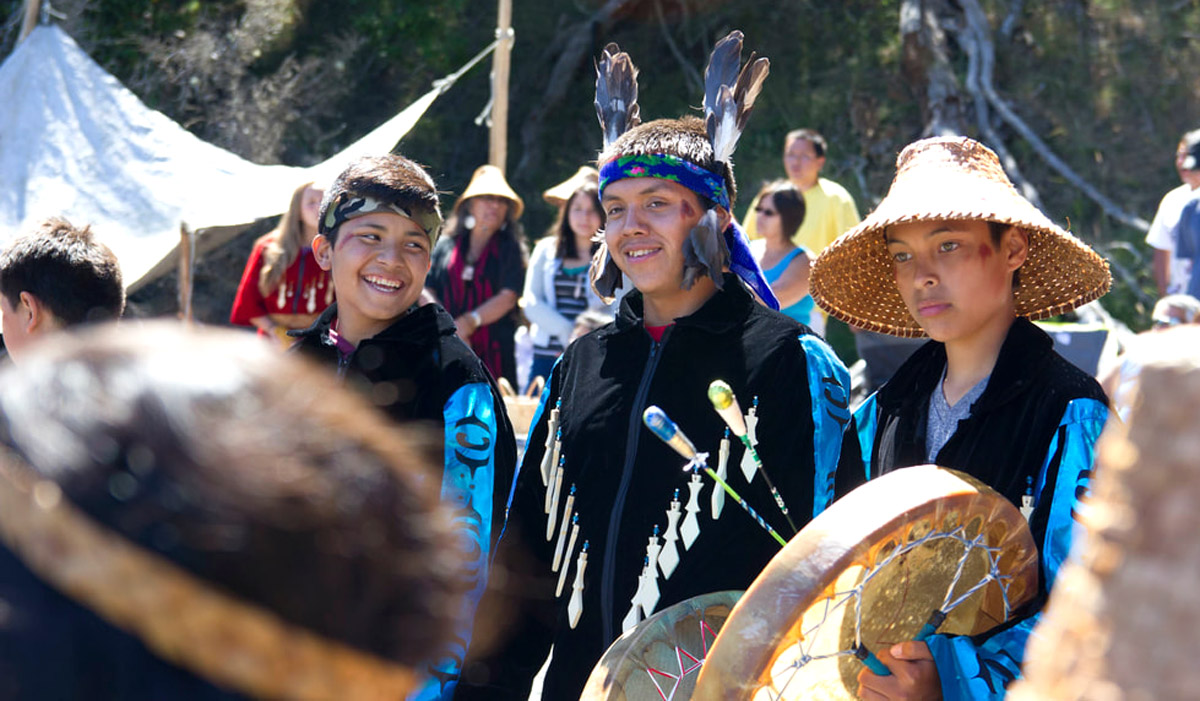
Keepers of the Tradition and Protectors of the Circle of Life, a group of Lummi Nation tribal youth, sing and drum at a naming ceremony for two tribal members on the beach of Henry Island, one of the San Juan Islands in Washington. Photo courtesy of Whiteswan Environmental.
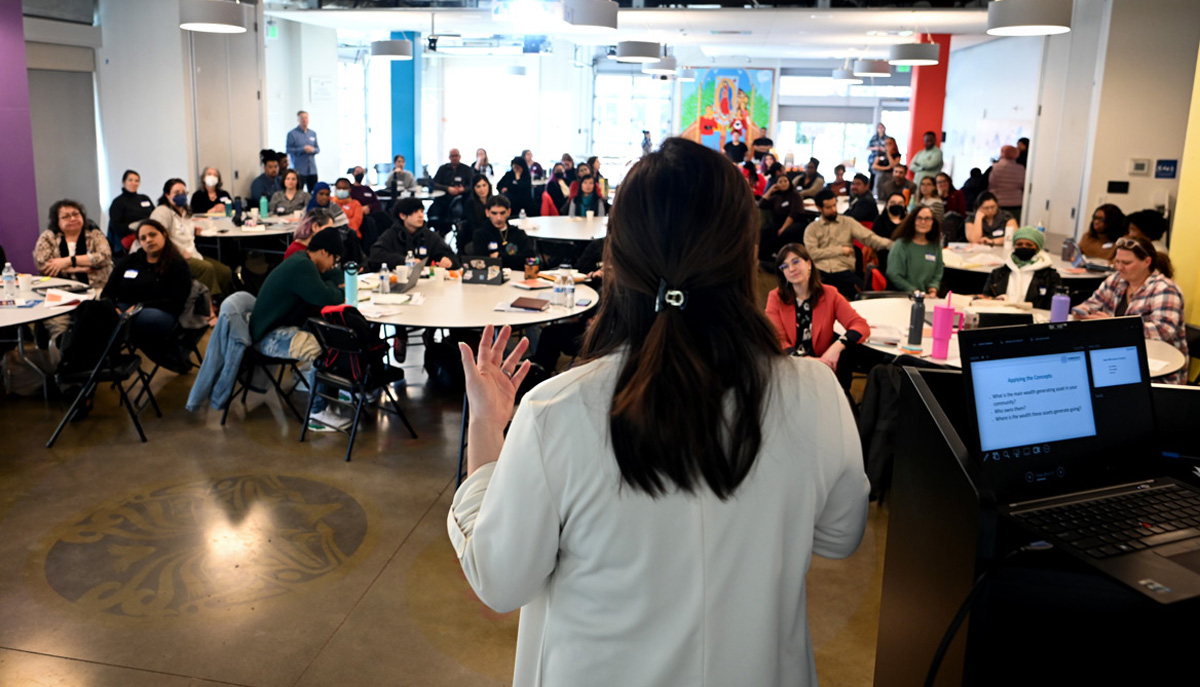
Shiho Fuyuki, lab leader at People’s Economy Lab, speaks at the organization’s Community Wealth Building workshop in March 2024. Photo by Tawfiq Abdulaziz, courtesy of People’s Economy Lab.
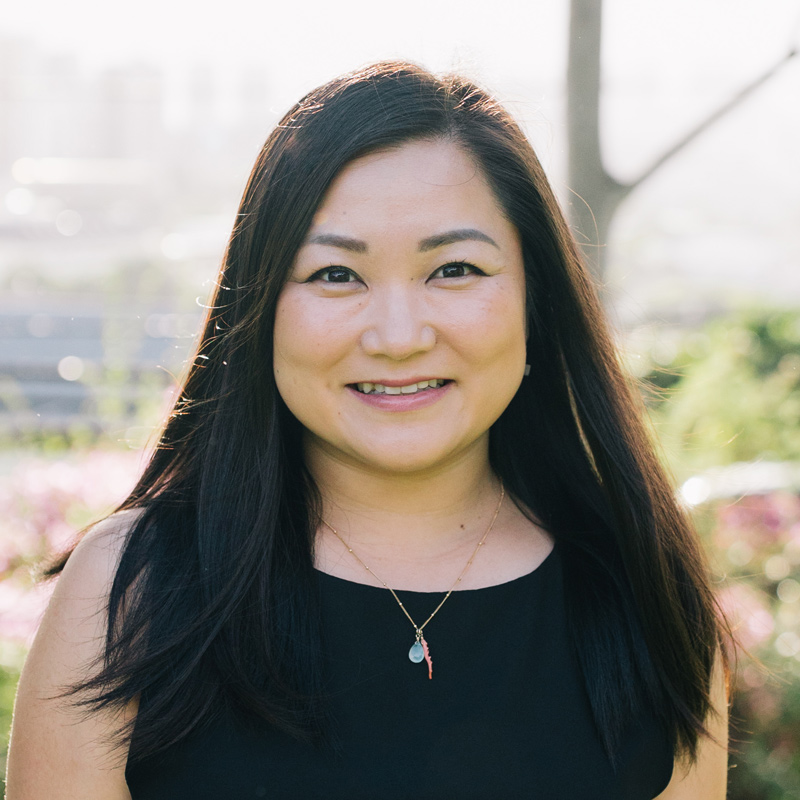
“Building trust over time really allowed us to move forward. You don’t get to a place of collaboration without trust and aligned values.”
Shiho Fuyuki
Lab Leader, People’s Economy Lab
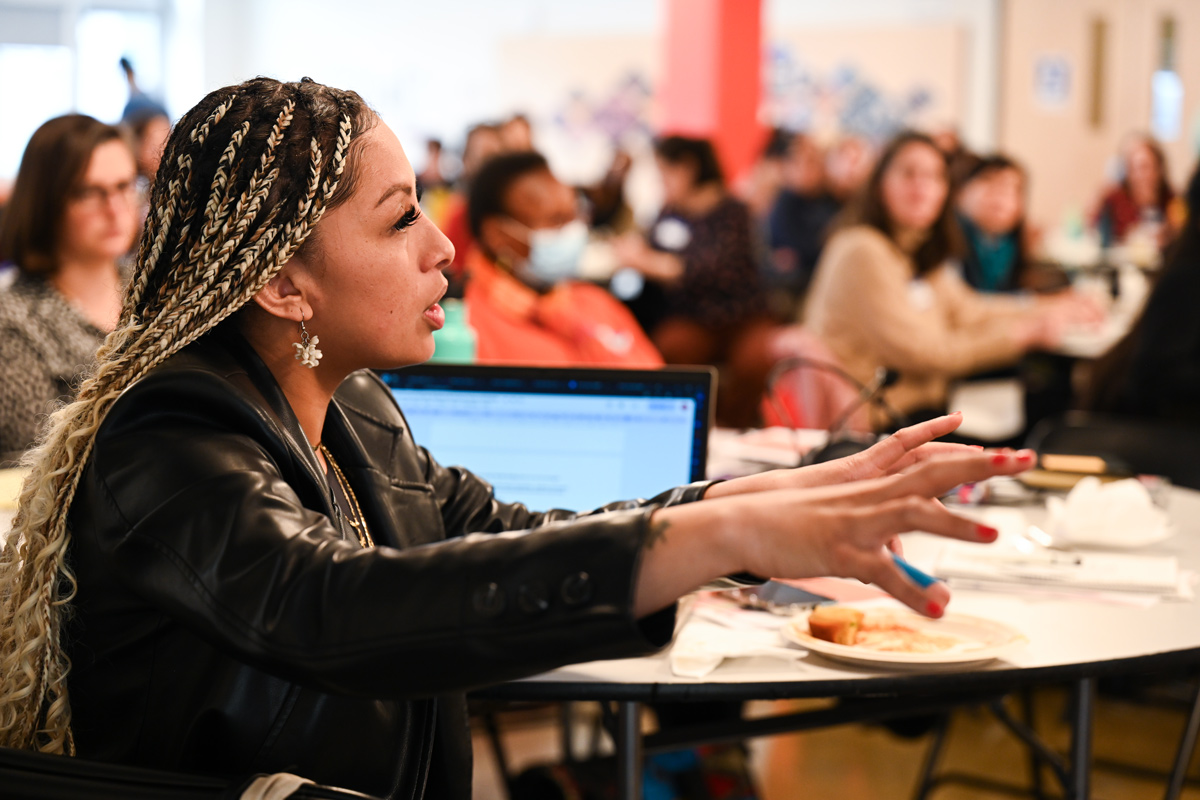
People’s Economy Lab’s Community Wealth Building workshop in March 2024. Photo by Tawfiq Abdulaziz, courtesy of People’s Economy Lab.

